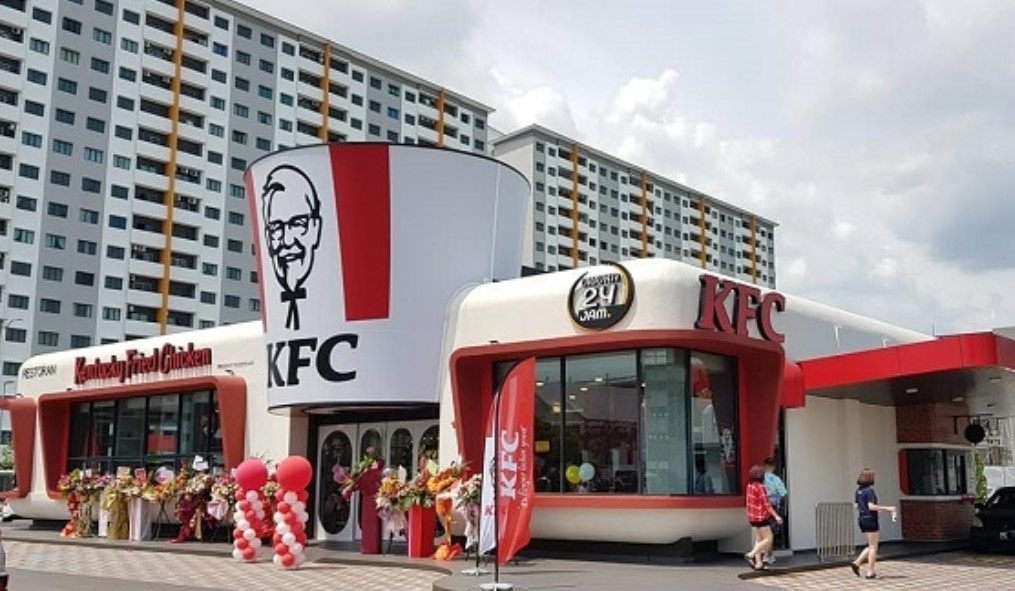THE boycott towards brands perceived to have links to Israel is still in full swing in Malaysia with many consumers making informed decisions on where to spend their hard-earned cash.
Central to many boycotters’ “informed” decision-making process is Boycott, Divest and Sanctions (BDS).
This organisation which has a Malaysian arm has been crucial in mobilising consumers globally to exert pressure on companies with links to the Jewish state. This is in solidarity with Palestinians in the on-going Israel-Hamas conflict.
For many Malaysian consumers, social media has been the main source of info on these offending companies with BDS regularly quoted.
The effects of the boycott have been greatly felt domestically with a number of franchises reporting near-empty outlets. These include popular chains such as Starbucks, McDonalds’s (McD’s) and KFC.
KFC, in particular, has been very much in the spotlight especially after news that it had suspended operations of 108 outlets in Malaysia. Pro-Palestine boycotters were quick to claim victory while many consumers believe that this has more to do with perceived poor value of KFC meals.
The latest twist in this boycott saga came about when Professor Nazari Ismail who is the Malaysian branch chairman of the BDS movement clarified that KFC was never on its list.
KFC tak pernah ada dalam senarai boikot – BDS https://t.co/OOm8d2u1bb
— Malaysiakini (BM) (@mkini_bm) May 26, 2024
He went on to compare KFC to McD’s and explained why the Golden Arches was on its list but not the Colonel. Consumers were urged to boycott McD’s after branches in the Jewish state were reported to be giving free meals to Israeli soldiers.
Nazari further contended that some consumers had decided to avoid the Colonel due to economic reasons, and not because of any boycott related to the Israel-Hamas conflict.
This news was seized upon by a number of netizens who are openly questioning boycotters for their ill-advised actions against KFC. Whether it be propagating misinformation online or simply not buying KFC products, their actions have had severe consequences, not least the loss of employment for many KFC staff who are coincidentally Malay Muslims.
Ni dah kira menganiaya. Jahat. Berapa ramai jadi mangsa dek boikot pukul rata tak kaji elok2 https://t.co/3DwOJK2I0R pic.twitter.com/nV6tQhg1Br
— StratCommProBono (@StratcommPMX) May 26, 2024
One such netizen is X (formerly Twitter) @StratcommPMX who simply queried as to how many consumers have become victims of an ill-informed boycott.
The post has generated 1.8 million views at time of writing, eliciting plenty of comments. Here is a sample.

Some netizens claimed (erroneously) that while KFC itself was not on the BDS list, one of its investors was Yum! Brands – an investor in Israeli start-ups – thus sparking the local boycott towards the fried chicken franchise.
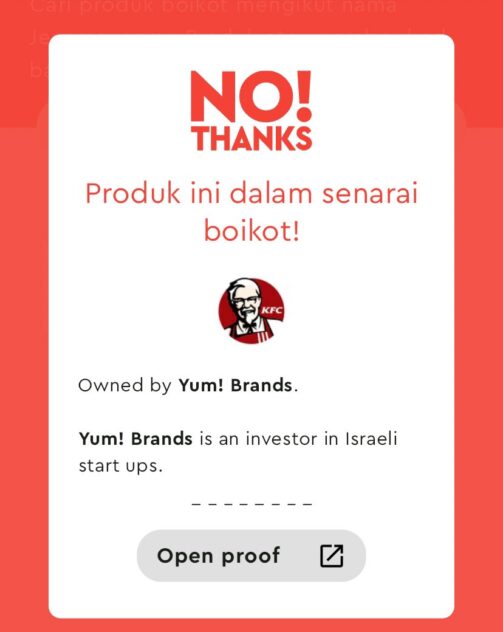
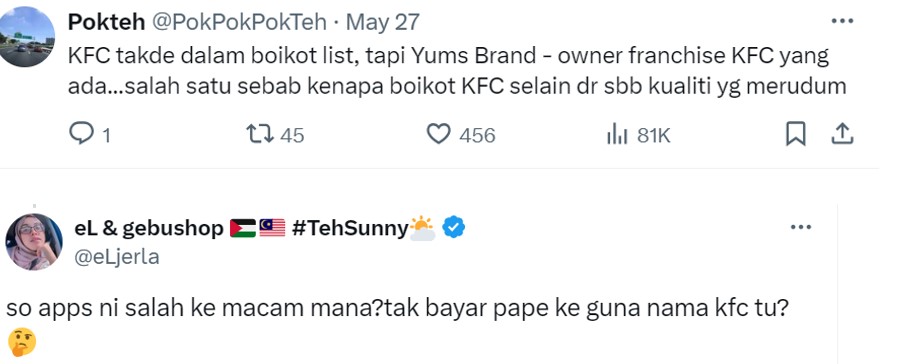
The above is one such example of misinformation or confusing info that is found circulating on social media. Some netizens explained that Malaysian KFC franchise is owned by Johor Corporation (JCorp), not Yum! Brands.
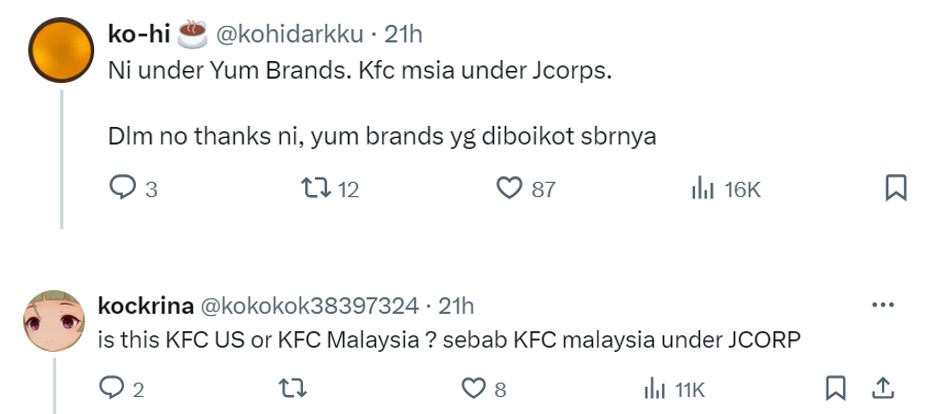
Quite a few confirmed that their primary motivation for not patronising KFC was down to poor quality of the food being served.

This very issue is trending and there were numerous complaints about the poor quality of KFC meals.
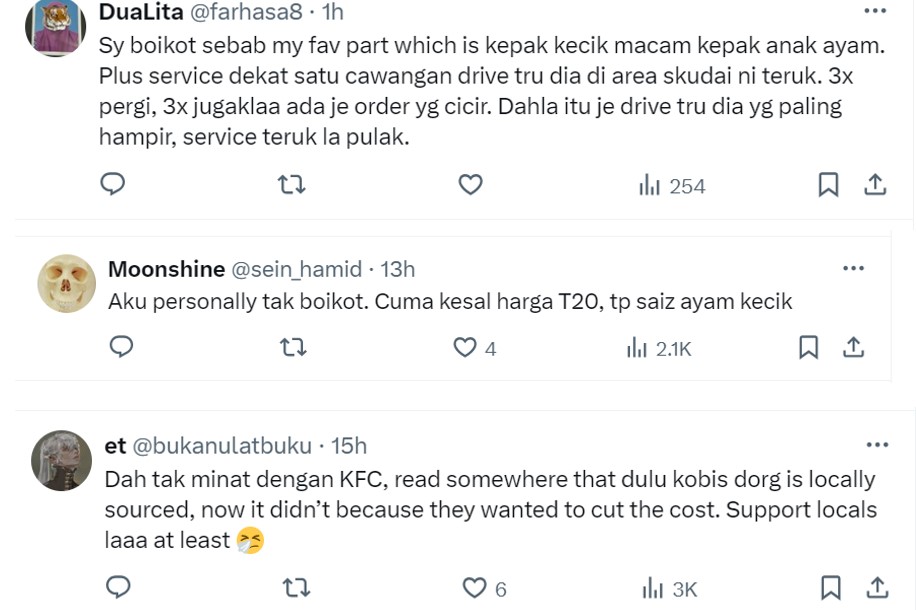
This unhappy consumer sentiment was also reflected on Malaysiakini’s X feed which was reporting on the same issue.

Some netizens queried why the delay in clarification.

How did it go wrong?
A few pertinent issues need to be raised.
Firstly, as the original poster pointed out, local boycotters must ensure their actions are backed up with the right info to avoid unwanted consequences. Cross check and confirm before taking decisive action or sharing self-righteous content online.
Secondly, it is indeed perplexing that KFC and BDS took such a long time to clarify this matter. Given the adverse effect it has had on its business, one would have thought that KFC would have done more to ensure this pertinent information was effectively disseminated.
Shouldn’t each outlet have at least carried a prominent sign stating KFC is NOT on the BDS list? It certainly can be argued that part of the fault lies with KFC in its poor crisis management that has greatly contributed to declining sales.
Thirdly, given the number of negative comments regarding KFC’s drop in QC (quality control) all over social media, it appears that KFC still has a lot of work to do to win back customer support. This statement by BDS may just be a pyrrhic victory for KFC if it does not properly address the many issues highlighted by disgruntled customers.
It is a tough market and the last thing KFC or any other business need right now is the bottom line being affected by misinformation or poor crisis management.
Time will tell how successfully KFC managed this episode or will it confine the Colonel to the annals of Malaysian fast-food history. – May 28, 2024


